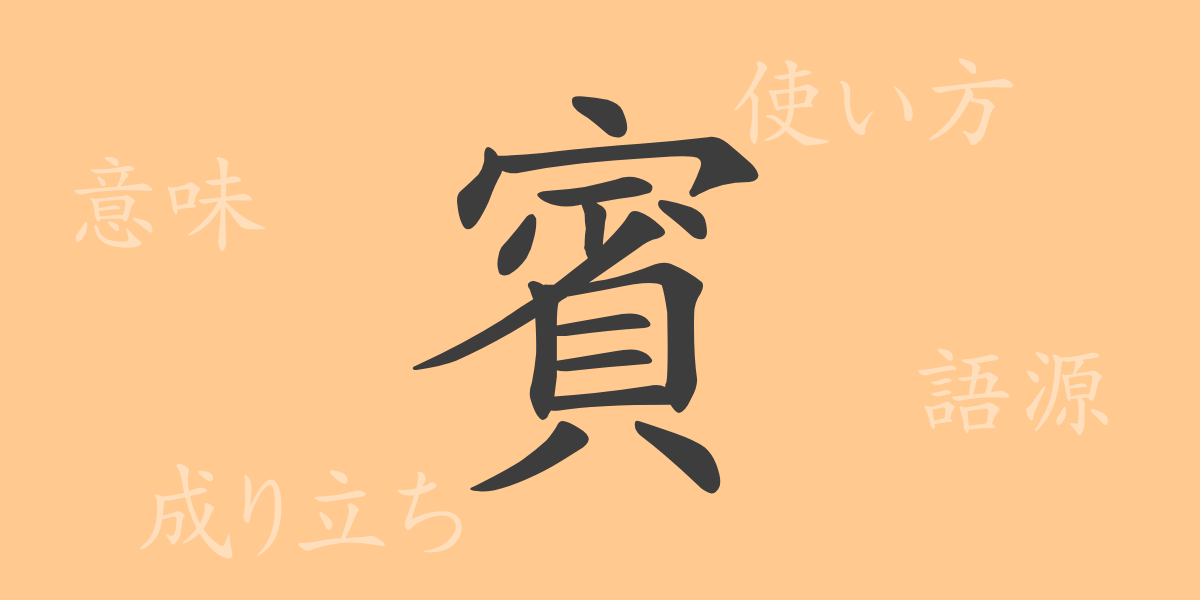In the Japanese language, there are numerous kanji characters, each with its own unique history and meaning. One of the commonly used kanji characters is “賓” (hin), which can be seen in our daily lives, but opportunities to learn about its origins, meanings, and usage in detail may be surprisingly rare. In this article, we will delve deep into the world of “賓” (hin) and unravel its charm.
The Origin of 賓 (hin)
The kanji “賓” (hin) is a character that originated from ancient China, tracing back to the form “宾” (bin). Originally, it was a combination of “宀” (ukanmuri) and “彡” (sanzui), representing the act of grooming one’s hair under a roof. This stems from the custom of tidying oneself when welcoming guests. Over time, the character evolved into “賓” (hin), incorporating “貝” (kai) to signify the act of welcoming guests with wealth.
The Meaning and Usage of 賓 (hin)
“賓” (hin) is used as a kanji meaning “guest.” Generally, it refers to foreign dignitaries or important guests, carrying a nuance of respect. In terms of usage, it appears in words like “国賓” (kokuhin) to denote foreign dignitaries receiving the highest state honors, or “賓客” (hinkaku) to refer to special guests.
Reading, Stroke Count, and Radical of 賓 (hin)
The kanji “賓” (hin) has the following characteristics:
- Reading: On’yomi (音読み) is “ヒン” (hin); there is no Kun’yomi (訓読み).
- Stroke count: 15 strokes
- Radical: 貝 (kai)
Idioms, Sayings, and Proverbs Using 賓 (hin) and Their Meanings
There are several idioms, sayings, and proverbs that include “賓” (hin), such as:
- 国賓 (kokuhin): Foreign dignitaries receiving the highest state honors.
- 賓客 (hinkaku): Guests welcomed with respect, or distinguished guests.
- 賓至如歸 (hinshitoshitekikaeru): A saying describing how guests feel at ease as if they were at their own home, indicating excellent hospitality.
Summary of 賓 (hin)
The kanji “賓” (hin) reflects the historical evolution of the culture of hospitality. Its meaning goes beyond simply “guest,” conveying a sense of respect and honor. In Japan, terms like “国賓” (kokuhin) are used in diplomatic contexts, making it an important kanji representing international etiquette. By cherishing the spirit of “賓” (hin) in our daily lives and warmly welcoming visitors, we can build richer human relationships.

























